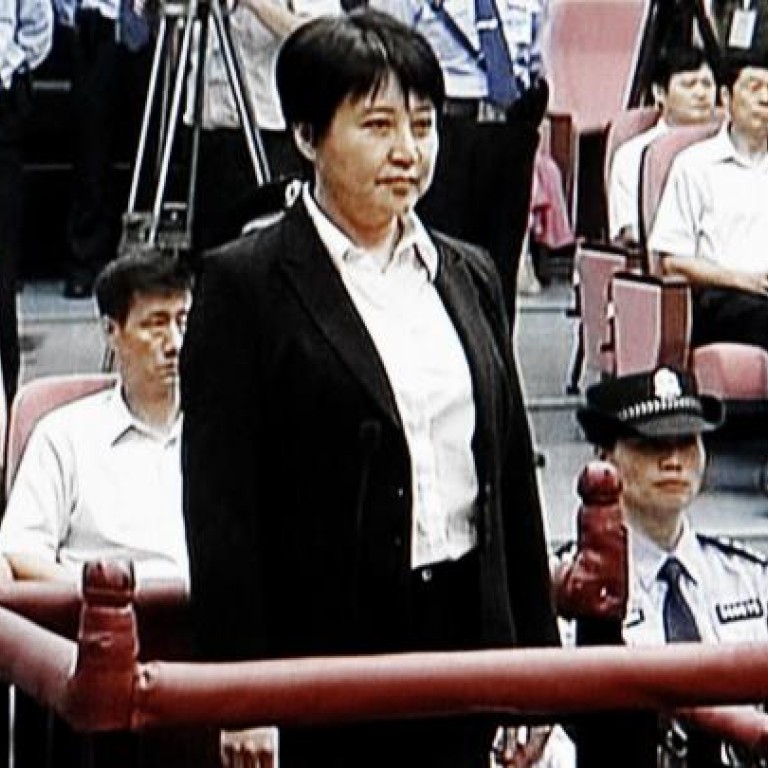
Talk of imposters in Gu Kailai and Zhou Kehua cases shows lack of trust
Fresh evidence of pervasive mistrust of the government is the last thing Communist Party leaders want to see as they try to paper over scandals for fear they will interfere with a looming power transition.
But they are having a hard time stamping out rumours that an imposter, not the wife of a toppled party "princeling", appeared in court for her trial and sentencing in a sensational murder case, and that a man shot dead by police in Chongqing last week was not the armed robber wanted for multiple homicides they claimed.
Analysts said the online rumours suggested that mistrust of the government and state media was increasing.
"The government covers up too often and the state media has lied too much in the past," said Dai Qing , a veteran journalist and commentator. "It is a kind of credibility crisis and it will tell the government that their traditional Maoist philosophy of rule will no longer work in an increasingly freewheeling society in the internet age."
Gu Kailai , the wife of former Chongqing party boss Bo Xilai , was given a suspended death sentence on Monday for murdering British businessman Neil Heywood.
Ahead of the sentencing, overseas media entertained a theory that the woman shown in video footage of the trial earlier this month was not Gu but a lookalike. Some quoted security experts familiar with facial recognition software as saying the person shown in state television footage shot in the courtroom was not Gu.
Mainland internet users remarked that the woman in the footage was much chubbier than Gu had been at the funeral of her father-in-law five years ago, and composite images comparing the two have been circulated online.
Some even alleged that they had unearthed the name and origins of the imposter, claiming she was 46-year-old Zhao Tianshao, from Langfang in Hebei province.
Similarly, the internet has been buzzing over whether police in Chongqing really shot dead Zhou Kehua , a fugitive wanted for killing 10 people in a series of robberies. Some alleged that police used photos of a fellow officer shot dead by Zhou to fake the death of Zhou. They claimed the imposter was Fang Bin, but police denied the allegations, saying no such officer existed.
The rumours have been so intense that censors have banned searches for (body double) on many popular websites.
Professor Liu Kang, from the department of Asian and Middle Eastern studies of Duke University in the United States, said that because mainlanders did not trust the government and lacked sufficient information and expertise to make their own judgments, they tended to believe in conspiracy theories.
Cover-ups of the death tolls in epidemics such as severe acute respiratory syndrome and natural disasters and the censorship of sensitive topics have contributed to increasing scepticism.
Dai said the problems lay in the government's handling of the cases of Gu and Zhou as the leadership tried to quickly end them before the 18th party congress. "I cannot say whether either is a real person or imposter, but what I can say is that I believe that the top central leaders would have ordered local judicial and police departments to finish the cases as scheduled," Dai said. The imposition of such deadlines made fakery by local officials a possibility.

